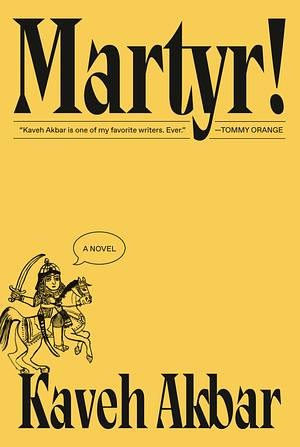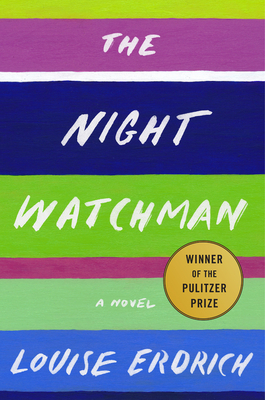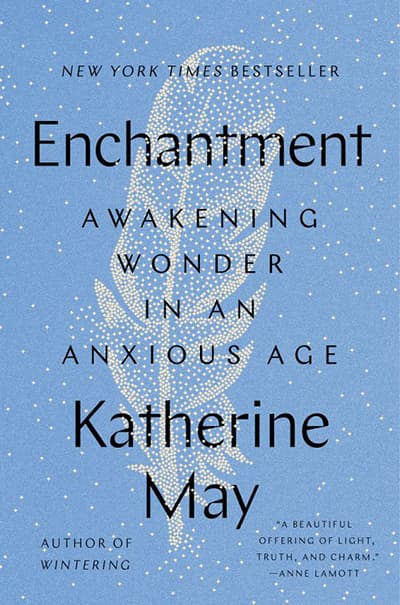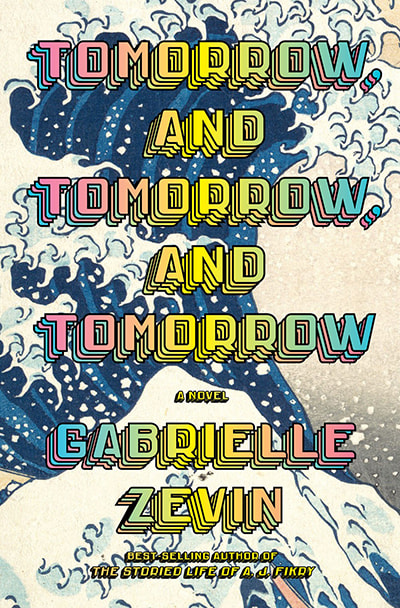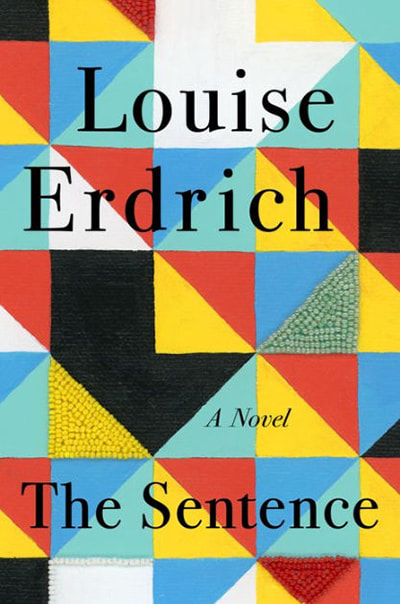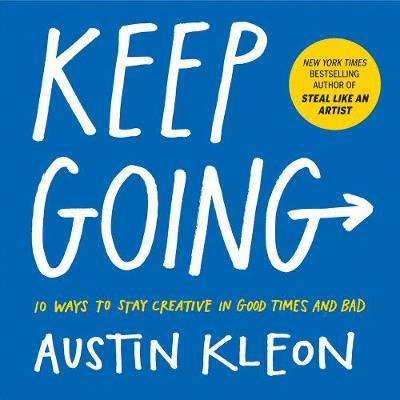Contains spoilers
-
Everything didn’t have to be as complex as Zee constantly made it, Cyrus thought. Sometimes, life was just what happened. What accumulated.
-
“There’s no difference to the outside world between a good guy and a bad guy behaving like a good guy. In fact, I think God loves that second guy a little more.” “Good-person drag,” Cyrus thought out loud. That’s what they called it after that.
-
“Maybe you don’t believe God wants you to be happy? God, your mother, poetry, whatever. What makes you so special that everyone else deserves that except you?”
-
Cyrus had come to expect certain constitutional surprises from his sponsor, sizing him up to be one kind of man—starchy, conservative—only for him to illuminate again and again the wide gulf between the image on his dust jacket and the story inside.
-
What do you, specifically, want from your unprecedented, never-to-be-repeated existence?
-
Ali stood at her side weeping enough for all three of them, saying “Alhamdulillah” over and over. He wasn’t particularly religious, but what else does one say when one’s son is born? “He has eyes! Alhamdulillah. He has hair! Alhamdulillah.”
-
He hated having to convince people he was both sufficiently immobilized by despair and also doing okay enough to take care of himself and his son.
-
Ali’s anger—a moon. It grew so vast it scared him, so deep it felt like terror.
-
That Ali’s family, his friends, could put words around their anger meant it was a different thing entirely from what he was feeling. Ali’s anger felt ravenous, almost supernatural, like a dead dog hungry for its own bones.
-
Sometimes he wanted to get away from Cyrus. He’d sit in another room, smoking in the dark—he’d started smoking again—and when his son stirred Ali would wait as long as he could before sighing, going in to grudgingly care for him, to see dead Roya’s living brown eyes staring up at him from the crib. Ali stopped eating or answering the phone. His rage hardened into a plaque around his heart.
-
Every night he would lie awake, endlessly reprocessing the day’s events, discovering in these rehashings slights and conversational missteps that hadn’t in the moment occurred to him to worry about. He’d work to try to convince himself these affronts were imagined, then his brain would offer its rebuttal: they were real, and each person he’d maligned would remember it forever—the friend whose new sneakers Cyrus hadn’t noticed, the teacher whose hello he’d accidentally ignored. The cycle repeated endlessly.
-
Then he’d go to his room and sleep like a mountain.
-
There were all these seasons nobody even mentioned. New wets, new warm soft heats. He wanted to live in them all.
-
“Right. When people think about traveling to the past, they do it with this wild sense of self-importance. Like, ‘gosh, I better not step on that flower or my grandfather will never be born.’ But in the present we mow our lawns and poison ants and skip parties and miss birthdays all the time. We never think about the effects of that stuff.” Roya was working herself up. “Nobody thinks of now as the future past.” “It’s the same way with the future,” said Roya. “We plant a tree imagining our kids will play under it one day, or we go to some shitty business meeting because it might be the one where our boss singles us out for a promotion. Every tiny decision becomes mired with importance, and we’re immobilized.”
-
“We have difficulty seeing our present selves in history the same way we view our past and future selves. That’s all I’m getting at.”
-
“Soon there won’t be any left,” said Lisa. “What’s that?” asked Roya. “Coral. It’s all dying.” They both paused. “How do we move through all this beauty without destroying it?” asked Roya.
-
Like in Iran, there are these schools for the children of men killed in the war, who they call ‘martyrs.’ Those martyr schools are the good schools, the fancy schools, you try to get your kids into them. Kids with healthy parents grow up jealous of orphans, because the children of martyrs get automatic college admission, all this special treatment. I’ve heard of children of martyrs trying to hide it, like they’re ashamed of all the privilege. Like trust fund kids, except instead of trust funds they have dead parents. It’s nuts.”
-
You wrote a fact in a book and there it sat until someone born five hundred years later improved it. Refined it, implemented it more usefully. Easy. You couldn’t do that with soul-learning. We all started from zero. From less than zero, actually. We started whiny, without grace. Obsessed only with our own needing. And the dead couldn’t teach us anything about that. No facts or tables or proofs. You just had to live and suffer and then teach your kids to do the same.
-
What was there to complain about? A murdered wife? A sore back? The wrong grade copper? Living happened till it didn’t. There was no choice in it. To say no to a new day would be unthinkable. So each morning you said yes, then stepped into the consequence.
-
Nearby, a woman was lifting a long blunt to the lips of the copper bust of John F. Kennedy while a friend snapped a picture. Cyrus was trying to be better about noticing these moments, about feeling grateful for the texture and specificity they lent his life. Cyrus believed a hyper-focus on occasions for gratitude would make his eventual death more poignant, more valuable. When a sad-sack who hated life killed themselves, what were they really giving up? The life they hated? Far more meaningful, thought Cyrus, to lift yourself out of a life you enjoyed—the tea still warm, the honey still sweet. That was real sacrifice. That meant something. He considered making this an essential quality in his book, leaving behind a life you cared about. It was one of the things he would have to work hardest on. He had a decent life, didn’t need to work too hard to stay where he was. His rent was cheap, he had friends, there were books he was excited to read. But some days, that all felt so abstract as to become totally meaningless. Cyrus often wept for no reason, bit his thumbs till they bled. Some nights he’d lie awake till morning, frightening sleep away with the desperation of his wanting it.
-
There was nothing in his life that wasn’t contaminated by what he mostly mindlessly called “late capitalism.” He hated it, like everyone was supposed to. But it was a hate that made nothing happen.
-
I like the loud guys best, Rachmaninoff and Mahler and Vivaldi. But I imagine this man, this boy really, this soft boy, playing Debussy, he looks like he’d love Chopin but especially Debussy, I imagine him swimming through an underwater cathedral, stained glass and tiny fish, with just his fingers, just his soft hands making sunken cathedral sounds. That’s what he should be doing.
-
I remember in school Agha Pahla holding up a stone suspended in the air by a string, telling us how the stone was full of potential energy—potential energy, the names we give things!—and how when the stone is dropped all that potential energy gets converted into motion, into kinetic energy, action, something like that. And that transformation, potential energy into motion, is what makes stones powerful, terrible, how they can crush people. Sometimes I feel like that, like I’m walking around all stuffed up with potential energy, a stone hanging in the air with no knife sharp enough to cut the rope.
-
Cyrus could see it in their chests when they looked at him. It was like Americans had another organ for it, that hate-fear. It pulsed out of their chests like a second heart.
-
She was gorgeous in that aggressively American way, the kind of woman you might see in an ad for cold medicine.
-
Cyrus felt in that moment like he was wearing a crown. Sonic Youth, the streetlights, the smell of ozone after rain—it was all for him. His grapefruit juice had transubstantiated into ambrosia. It tasted so good it made him dizzy. Cyrus felt new. Sinless. Invincible.
-
“Some centuries ago all these Safavid explorers from Isfahan go to Europe—France, Italy, Belgium—and they see all these gargantuan mirrors all over. Ornate, massive mirrors everywhere in the palaces, in the great halls. Building-sized mirrors. They come back and they tell the shah about them and of course he wants a bunch for himself. So he tells his explorers, his diplomats, to go back to Europe and bring him mirrors, giant mirrors, buy them for any price. And so they do, but of course as they bring these massive mirrors back across the world, they shatter, they fracture into a billion little mirror pieces. Instead of great panes of mirror, the shah’s architects in Isfahan had all this massively expensive broken mirror glass to work with. And so they begin making these incredible mosaics, shrines, prayer niches.” “Whoa.” “I think about this a lot, Cyrus. These centuries of Persians trying to copy the European vanity, really their self-reflection. How it arrived to us in shards. How we had to look at ourselves in these broken fragments, and how those mirror tiles found themselves in all these mosques, the tilework, these ornate mosaics. How those spaces made the fractured glimpses of ourselves near sacred.” She paused, took a little sip from her white mug of water, then continued: “It means, in my humble opinion, we got to cubism hundreds of years before Braque or Picasso or any European. That maybe we’ve been training for a long time in sitting in the complicated multiplicities of ourselves, of our natures. At least for a time. No monolithically good Siegfried hero versus monolithically bad dragon.”
-
Ferdowsi called his poem Shahnehmeh, “The Book of Kings.” He filled it with ancient histories of Persia’s kings and heroes, epic battles and romances, fantastical magic and treacherous deceits. He also put his son, Sohrab, in it. Ferdowsi’s love for his lost son colored the whole text, like deep wine spilled across its pages.
-
“I cry all the time,” she continued, as if I wasn’t even there. “I hate it. It embarrasses me. I am not fragile, but sometimes my body just cries and I can’t help it. It’s a betrayal. Like someone tickling you, you laugh even when you don’t want to, even when it hurts. That’s how I cry.”
-
He read once about a Sufi prayer that went “Lord, increase my bewilderment.” That was the prayer in its entirety.
-
The performance of certainty seemed to be at the root of so much grief. Everyone in America seemed to be afraid and hurting and angry, starving for a fight they could win. And more than that even, they seemed certain their natural state was to be happy, contented, and rich. The genesis of everyone’s pain had to be external, such was their certainty. And so legislators legislated, building border walls, barring citizens of there from entering here. “The pain we feel comes from them, not ourselves,” said the banners, and people cheered, certain of all the certainty. But the next day they’d wake up and find that what had hurt in them still hurt.
-
Zee had this monologue he’d give sometimes about how the sound of a jazz singer’s voice cracking on a record was the sound of an emotional event too urgent for the medium assigned to record it; Cyrus knew he’d read that in a Brian Eno book but it didn’t make it any less true
-
That night Cyrus and Zee ordered pizza and stayed in to watch the hotel’s basic cable, HGTV and Office reruns. Zee talked about how luxurious it felt to do nothing in New York City, a place where you could do anything. He kept saying “opportunity cost,” that the opportunity cost of doing nothing in the city was so immense that it felt opulent.
-
“They’d never be able to make this today,” Zee said about the episode in which a character claimed to have invented a gaydar after a member of the office was outed. “You don’t think so?” “No way. You think they could?” Cyrus thought for a second: “I guess not. But that’s the point, I think.” “What do you mean?” Zee asked. “Like you couldn’t make The Honeymooners or Cheers today either.” “Was Cheers the one with Archie Bunker?” Zee asked. “Nah, that was All in the Family. But that was fucked up too. That kind of comedy always exists on the edge of what you’re allowed to say at the moment. And that edge keeps moving. With the moment. The Everton window or whatever.” “Overton,” Zee said. “Huh?” “Overton window, not Everton.” “Oh, whatever,” Cyrus said, sucking his teeth. “But it’s everywhere. I’m constantly afraid to read the books I loved as a kid because I know there’s going to be some awful shit in there.”
-
“Anyway, I had this Miserere tape stuck in my car for years, and I couldn’t get it out. So I just listened to it again and again and again, the whole tape was only twenty minutes long, less than that even, and then the tape player would automatically rewind itself and start over, which was a very advanced feature for a tape player back then, by the way. I must have listened to it one thousand times, maybe more. Why should I lie? Between death and me, it’s like…Certainly the mullahs would say the tape was an apostasy. But I just kept listening to it over and over. And do you know what happened? What changed?” “What?” “Nothing. It felt like a miracle every time. It didn’t matter if I came in just for the last minute, the last ninety seconds of the tape. There were five voices and I heard something new every time. The idea that someone, a child, could hear it once or twice and remember everything, and I could hear it a thousand times like I’d never heard it once before? What does that tell you?”
-
Cyrus knew his pragmatic brain would click into fix-it mode soon, but he first allowed himself a few sumptuous instants of self-pity. He wanted, acutely in that moment, to be not-alive. Not to be dead, not to kill himself, but to have the burden of living lifted from his shoulders.
-
Zee had joked that a hotel’s fanciness was directly proportional to how long it took you to figure out how to turn on the showerhead
-
“What I’ve noticed,” he continued, “is that here, it’s the little details that matter the most. In life we were yoked to all these big details—bodies and tribes, who is family, who is enemy, where and what to eat. All that shit drowned out the subtler shades of experience. Here, it’s about this Swisher, this cheap wine, this crystal.” When he said “crystal” he reached absentmindedly toward the sky and plucked a small star, which burned heatlessly—like a firefly—in his palm.
-
The whole Abrahamic world invests itself in this promise: Don’t lie, don’t cheat, don’t fuck or steal or kill, and you’ll be a good person. Eight of the ten commandments are about what thou shalt not. But you can live a whole life not doing any of that stuff and still avoid doing any good.
-
I read that our genetic code works this way, that most of the sequences are evolutionary fossils, replicated endlessly and meaninglessly, trillions of cells copying the same nothing for millennia.
-
I started using my diner money to buy oil paints, canvas, experimenting in my studio. Light washes of big colors, bold shapes. Then details. Playing with value, hue. Fat dark blues, arthritic grays. It was a place to put myself. The less time I spent in my higher brain, in the abyss, the safer I was. In New York, my papers said my name was Leila. Everyone called me my dead love’s name. The love I had killed when I died. Except I was still here, living inside her name. I was here, Ali and Cyrus were there, and Leila? Leila was nowhere. Here, there, nowhere. When I painted, I could be nowhere too
-
The handful of hours a week I wasn’t painting or working at the diner, I’d visit galleries. Obsessively. Always the little tiny ones in Chelsea, in the East Village. I wanted to see what everyone, absolutely everyone, was doing. Right then at that moment. Not the Met or the Frick. I knew well enough what the masters had made of things. I wanted to understand the visual vocabulary of the current moment, learn how to use all of it: textile art, neon sculpture, photography. Each felt like vital phrases within this new language that might allow me to communicate through—with?—the abyss. It was a way to stay on earth.
-
“Every man who walks in here calls himself a painter, tells me about some Guernica he painted in high school art class.”
-
Eventually what I picked was one of my newest pieces, something I’d been working on for weeks. Since then I’ve realized this was inevitable. Every time I finish something, still, I am certain it’s the best thing I’ve ever made, that everything else was the useful but disposable compost preparing my living for the masterpiece I’ve just wrought. Painting saved me, but I can’t say I loved painting. I painted because I needed to. What I really loved, what I love, is having-painted. That was the high. Making something that would never have existed in the entirety of humanity had I not been there at that specific moment to make it.
-
Yes, the sheer dumb luck, as many have said, as I’ve said myself. To get such a chance from a gallery, even a small one, is one in a million. To catch the attention of a Times critic as a nobody, with no connections, no experience. Impossible. Except when Sang asked me to show her a painting, I had one. When she’d asked to see the paintings in my apartment, I had dozens. I’d worked my whole life to acquire the technical, the emotional skills to make those paintings. I’d chopped tomatoes and peeled half-eaten onion rings off plastic trays for thousands of hours. I’d painted in grief, weeping and painting, painting and weeping. There were probably weeks, whole months when I did not smile even once. I lived in a studio so small I could smell my neighbor’s farts. I spent every penny I had on canvas, brushes, paints. I killed myself. I killed my love. I forced myself to forget my husband, my brother. My country. My son. It’s easy for people who have sacrificed nothing to rationalize their own ordinariness by calling me lucky. But I sacrificed my entire life; I sold it to the abyss. And the abyss gave me art
-
What I want to say is that I was happy. Not always, not even mostly. But I did know real, deep joy. Maybe everyone gets a certain amount to use up over a lifetime, and I just used my lifetime’s allotment especially quickly, with Leila. But I don’t think it was a tragedy, my life. Tragedies are relentless. Nobody could ask for more than what I’ve had.
-
“Without you” was everywhere apparent, even if Sang hadn’t said it out loud. His mother had not been shot out of the sky at all. Some random other woman—Leila, was it?—had been. Cyrus’s mother was another one of those just-stepping-out-for-a-pack-of-cigs family abandoners. He’d been a tiny baby. It felt so pulverizingly mundane. Roya Shams, the deadbeat mom. Or at least, she’d planned to be a deadbeat, before her lover—her lover!—Leila!!—was shot out of the sky. Cyrus felt annihilated. Furious. He felt angry for his sweet sick dead father. He felt angry for himself. Then at himself, for feeling angry instead of something more enlightened: acceptance, or perhaps compassion. That’s where he quickly settled, the vector of his rage, his hurt, pointed directly back at himself.
-
Fear made me work hard, get better. It’s a dirty fuel, but it works. And anger? Anger helped me to leave him. To get my boys away from him as soon as I could. To come thrive in this country that didn’t even believe we were people. To prove it wrong. You can put a saddle on anger, Cyrus.”
-
Cyrus once read an anthropologist who wrote about how the first artifact of civilization wasn’t a hammer or arrowhead, but a human femur—discovered in Madagascar—that showed signs of having healed from a bad fracture. In the animal world, a broken leg meant you starved, so a healed femur meant that some human had supported another’s long recovery, fed them, cleaned the wound. And thus, the author argued, began civilization. Augured not by an instrument of murder, but by a fracture bound, a bit of food brought back for another. It was an attractive idea.
-
For our species, the idea of art as ornament is a relatively new one. Our ape brains got too big, too big for our heads, too big for our mothers to birth them. So we started keeping all our extra knowing in language, in art, in stories and books and songs. Art was a way of storing our brains in each other’s. It wasn’t until fairly recently in human history, when rich landowners wanted something pretty to look at in winter, that the idea of art-as-mere-ornament came around. A painting of a blooming rose to hang on the mantel when the flowers outside the window had gone to ice. And still in the twenty-first century, it’s hard for folks to move past that. This idea that beauty is the horizon toward which all great art must march.
-
An alphabet, like a life, is a finite set of shapes. With it, one can produce almost anything.
-
Love was a room that appeared when you stepped into it.
-
All around them, the city’s skyline of desiccated towers blinked absently, some of them crumbling around their edges. The trees of Prospect Park had at some point shaken off the snow and erupted into bloom. Lavender buds, blue and yellow and crimson flowers Cyrus didn’t recognize. “Are you seeing this?” asked Zee, gesturing to the wilding world around them. “I am.” Cyrus nodded. “I think it’s maybe because of us.” His words weren’t moving quite in sync with his lips. “Of course you do!” Zee laughed. “You’re not wrong, though.” His hands were cupped in front of him on his lap. “You’re not wrong.”
-
Finishing the article, Cyrus found himself praying, suddenly, without even realizing it. Sitting back down on a bench he was forming a prayer not exactly in language, not out loud at all. The most basic form of prayer, he’d heard once, was something like “help me help me help me, please please please, thank you thank you thank you”; and Cyrus’s prayer in the park was not much more advanced than that. But it was a prayer all the same, recognizable—like an Archimedian scale—by the heft of what it displaced. What formed in Cyrus’s mind was a blunt and inarticulable plea to be done, for a reprieve from navigating what had become to him an unnavigable world, to not have to spend the next decade or decades unraveling what it all meant, had meant, would mean. The anger he felt at his mother. The vanished. The abandoner. But, also, the pride he felt for her, now. The great artist. It was too much. He prayed for an end to the tyranny of all symbols, beginning with language. He understood, with a clarity that had until that moment in his life eluded him, that he was not at all made for the world in which he lived, that art and writing had gotten him only trivially closer to compensating for that fundamental defectiveness, the way standing on a roof gets one only trivially closer to grabbing the moon than standing in the dirt. Let me be done, he thought, this time in words, his mother’s letter still glowing on the screen in his hands. He closed his eyes, said it again out loud: “Let me be done.”
